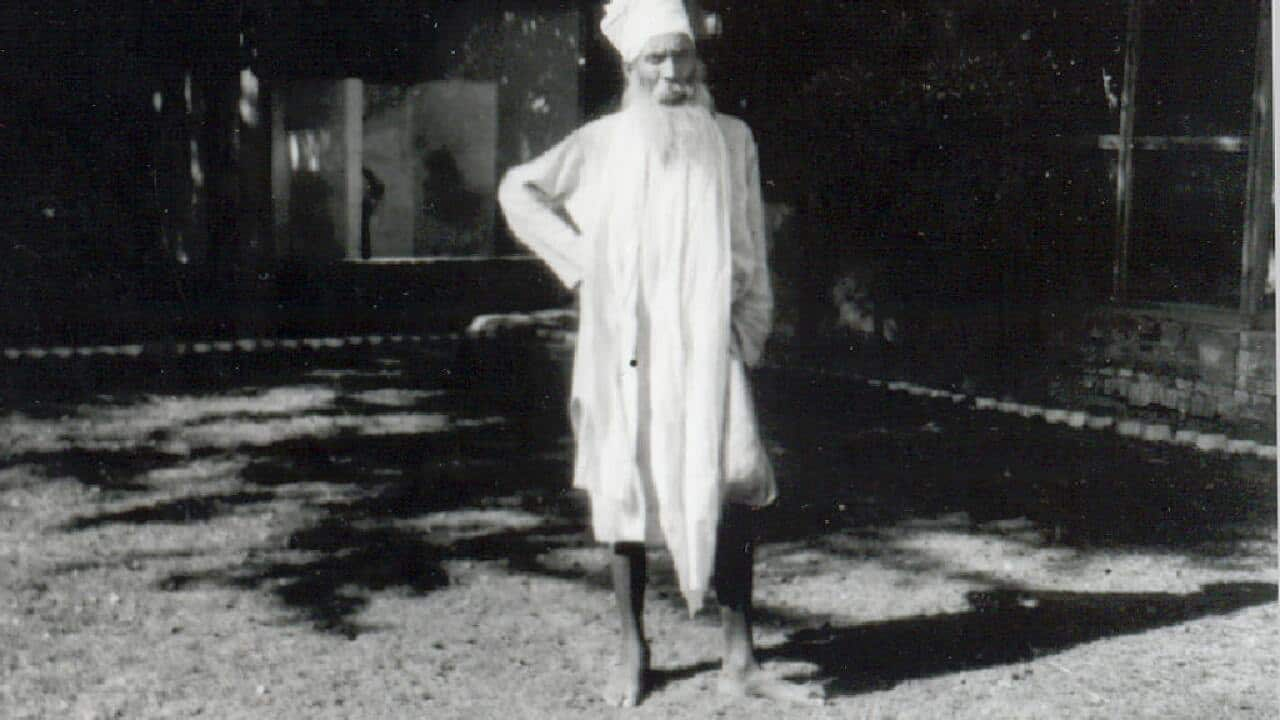You would continue endorse the common view that a mother’s love is the most selfless and her service to her child the most unconditional, until you study this unbelievably kind and generous man who without a doubt, surpasses every mother in the world. A mother surely gives her everything to her child without any expectations, but the catch is that she gives only to ‘her’ child. Her own child, her own flesh and bone. This man was everyone’s mother. Every discarded, ostracised person’s mother who was unfortunate enough to be abandoned by his family but fortunate enough to fall into this man’s lap who would become their mother. A man who sacrificed his personal life for the welfare of those who didn’t have a life. This embodiment of compassion and selfless service was Bhagat Puran Singh.
Bhagat ji’s mere mention evokes awe and respect. Leave alone emulating him, it is a daunting task to even imagine doing the kind of service he did for the disadvantaged and disenfranchised. It wouldn’t be an exaggeration to say that Bhagat ji spent his life cleaning up the dirt of those who could only create it and not clean up for themselves because they were physically and mentally incapable of doing that. His selfless service, compassion and humanitarian work has become institutionalised in the All India Pingalwara Society that is the pride of Amritsar and all of Punjab. One reluctantly has to limit this to Punjab because it is the misfortune of the rest of the world that doesn’t know much about the greatness of Bhagat ji and Pingalwara.
Born in 1904 in Village Rajewal near Ludhiana, Bhagat ji met himself in the company of his pious mother, Mehtab Kaur. His father, Shibu Mal was a wealthy moneylender who initially didn’t want Mehtab kaur to have a chid as he already had children from his deceased first wife. But he who is destined to make it big in life, can’t be denied life. So by pleading to Shibu Mal to let her proceed with her fourth pregnancy, Mehtab Kaur did a great favour to humanity and bore a friend of the forlorn, a helper of the helpless and a provider of the poor. Bhagat ji’s mother taught him at a very tender age to clear thorn and rocks from the roadside so that passengers and beasts of burden have a smooth run; to provide food and water to birds and animals who couldn’t express their hunger and to care for the environment by planting saplings and nurturing them into trees. It is sobering to see how an illiterate woman had this wisdom nearly a century ago about not only serving humanity but also preserving the flora and fauna that modern-day parents with professional degrees to boot are so poorly deprived of. Had Bhagat ji, like today’s children been pressured to score a certain threshold of marks in his exams in order to land a berth in a reputed educational institute or to secure a high-paying job, humanity would have been deprived of a great teacher.
Due to the insecurities his half-siblings had towards him about potentially claiming a share in their father’s inheritance, Bhagat ji’s mother took him away from home and life brought them to Montegomery, what is Sahiwal today in Pakistan. She worked as a domestic servant to pay for his education. In one of his life lessons while away from home, Bhagat ji, who was born as Ramji Das to a Hindu family, converted to Sikhism after he was treated as an unequal by the priests of a Hindu temple.
Bhagat ji moved to Lahore after he failed his matriculation exam and would spend his time reading about the needy and the environment in Lahore’s Dayal Singh Library. He performed sewa (free community service) at the local Gurdwara Dera Sahib, where apart from cleaning up the premises, he would serve the passengers who stayed in the gurdwara’s inn by washing their clothes, tending to their personal and medical needs. One day, he came to know that a four-year-old leper boy had been abandoned there by his caretakers. The Gurdwara priest performed ardaas (special prayers) to seek diving blessings for the boy and entrusted him to Bhagat ji’s care knowing of his selfless dedication towards those who couldn’t look after themselves. Considering this duty as an opportunity to serve God, Bhagat ji named him “Piara”, meaning the loved one and thus the idea of Pingalwara (abode of the crippled) was born in his mind.
Caring for a leper meant doing practically everything for him – from maintaining his personal hygiene to carrying him on his back wherever Bhagat ji went. Piara’s arms dangled around his neck while he went about looking for more needy people or animals to look after. He would refer to Piara as the “garland around his neck”. When India got partitioned in 1947, Bhagat ji took his mother, himself, Piara and his humanitarian services to the refugee camps of Amritsar, where he tended to those injured in the communal riots. Slowly, the numbers of the needy started swelling and Bhagat ji had a full plate but limitless devotion. He had no resources to provide for those he took under his wings, but made sure their needs were met. He would knock at people’s doors to beg for food, medicine and clothes. He improvised a cycle rickshaw into a hand-pulled wagon to transport the crippled and sick and this was the first ambulance of Pingalwara, which has now blossomed into a well-equipped medical facility in Amritsar that tends to the mental, physical and medical needs of those who are the castaways of society. His flagbearer, Dr Inderjit Kaur, an MBBS degree holder, just like her mentor, has devoted her life to the cause of Pingalwara. She gives a shocking account of the challenges Bhagat ji took up, all for nothing.
Bhagat ji was one of the earliest environmentalists of not only India, but the world. Back in the 1950s and 60s, he published and distributed pamphlets about soil erosion, depletion of the green cover, global warming and rain water harvesting. His mission of environmental preservation is being carried forward by Pingalwara with their myriad enterprises like a sewage treatment plant and afforestation drives across Punjab. Bhagatji expanded the scope of Pingalwara from providing a home to medically-challenged inmates to those who were discarded despite being physically and mentally fit, like baby girls, young married women tortured for dowry and widows.
For his glorious service and selfless devotion to living beings and the environment, Bhagat ji was conferred with the Padma Shri, the highest civilian award of India, in 1979, an era when such awards were not cheap as they have become today. He later renounced this prestigious award in protest of the army operation inside the Golden Temple in 1984.
If you try to sum up his life, you can safely conclude that he lived up to his name: Bhagat means devotee, Puran means complete and Singh means fearless. He was a complete devotee of all things living without any fear of endangering himself.




